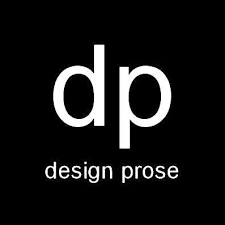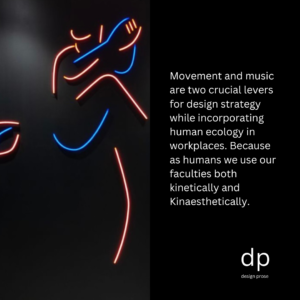Pallavi: In Real Estate, women continue to be underrepresented in leadership spots globally. Do you see a difference or pattern changing or emerging in a slot of 5 years in your career span? Do you think enough is being done or not yet and if not what are we missing?
Kathryn: In the past 10 years I have seen a vast change – we now have more women chairs on industry bodies, CEOs of construction companies, and leaders in real estate consulting. But as with most things in life, there is still much work to be done. In particular, I think women are still underrepresented on boards – but I think this is not unique to the real estate industry and will need some focus for many years to come in order to be considered a past issue. The question of intervention to drive change, inevitably leads to the consideration of quotas and here, I find, I am very conflicted. On the one hand of course, quotas like the Dax 30 have absolutely driven a change in attitude and culture, that has seen many more women at the top of companies, but I also find myself a little uncomfortable, that this is somehow not a “willing” process and so my concern is that the moment this sort of quota is no longer enforced – will companies simply slide backwards? There is no silver bullet for delivering on the program of gender equality, but what I have learned over my career is how important it is to remain true to your own values, know and trust in your own ability and through this hard work earn the support and sponsorship of senior leaders. The subject of gender equality will only truly be closed out once the issue is considered a business imperative – a key ingredient to ensure companies are relatable by society and in the end, their future workforce.
Pallavi: If one is perceived aggressive, assertive, bold, over confident, these attributes play out very differently in the face of competence for men and women in the business world. Do you agree or disagree and why?
Kathryn: To be honest, this is one area I definitely see changing, slowly but surely, as collectively society is just becoming less accepting of poor behaviour. I have never let a label define me and have charted my own course, based on my own values, listening, watching and learning from amazing people at all levels within the companies I have worked for and with. I have been very fortunate to have had some amazing mentors and sponsors through my career – both men and women. In every case, these amazing influencers, regardless of gender, have been assertive, driven, confident and demanding – primarily of themselves, but then obviously of others including me. But I also know that I have worked very hard over my career, setting harder targets for myself than any manager has set for me and I am proud of this. My advice is to listen to your inner voice. You will know if you are on the right side of that line, you will know if you are delivering value on behalf of your company and you will know if your leadership style is role-modelling the right values and beliefs. Never be afraid to ask for feedback – I do this frequently with my team, my clients and my vendor partners. Whatever comes back – you will learn from it, and having the confidence to be open to feedback leads to a growth mindset. No-one is perfect – it would be boring if they were!
Pallavi: What specific advice (both short term and long term) would you give to young and aspiring CRE women leaders across the globe to help them continue their journey and navigate and tackle the issues that may come up along the way.
Kathryn: I think, the thing I have come to value most is my network. A network is something you have to put effort into – and at the beginning it’s pretty daunting, as you are basically putting yourself out there to meet other like-minded professionals and that fear of the unknown and not being enough can be overwhelming. But what I learned pretty quickly, is that everyone feels the same! Over time, you have that enriching experience of either being helped, or helping others. It’s very satisfying to grow up in a network, as you each get that next step up. I have many people in my network that I have known from my very first job as Technical Officer at Harrods through to the present day at Deutsche Bank. I have worked in Asia, the US, Middle East and Africa and across Continental Europe – the great thing about technology is I can remain in contact with all the amazing people and perspectives at the click of button – so there is really no excuse! It’s actually one of the things that attracted me to become one of the founding members of CREW UK. Our network of women from across all aspects of the industry is both empowering and enriching with the added vantage of some great business to business outcomes. So my advice is to build your network, invest in that network and it will invest back into you with interest!
Pallavi: What are some of the most amusing and ridiculous things you have been told to play down your professional achievement over time, which you didn’t catch at that time but you learnt later in hindsight, wishing you knew it back then to deal better.
Kathryn: A few years ago I was lucky enough to be selected to attend the Deutsche Bank Women Global Leaders Program run in partnership with INSEAD and the wonderful and inspirational Herminia Ibarra – who if you have not yet read any of her books, or attended her webinars then you need to remedy! This program was designed to take top talent and nurture it in a concentrated way. The program was probably the most challenging thing I have ever done, as part of its purpose to was help you to hold up that mirror and really understand and learn from it. To make peace with aspects you simply can’t change, and invest in those you can – and above all to lose the imposter syndrome that so many women suffer from. I can honestly say… that I didn’t even know – what I didn’t know…. Until that program! It was as though someone had flicked a switch in my brain and in my confidence. The alumni of this program and the sister ATLAS Program which is designed to help open up C-Suite positions to our talented senior women, are some of the most talented women I know – Christiana Riley – now Management Board Member and CEO of our US business…. Heike Nott, Ex DB and now Senior Consultant at Grant Thornton LLP… Clare Peel, CFO for DWS… Jacqueline Guichelaar ex DB now CIO of Cisco… I could keep going on listing so many amazing women. I wish that somehow I had learned earlier on in my career, to stop trying to be what I thought other senior people wanted me to be and instead to be the best version of me that felt natural, to be comfortable that I could be enough, to put the needs of my team and my company before me and to really be present in my career. It was strange, a few months after the course had finished, a colleague who I respected tremendously, commented one day that she had seen a marked change in my confidence – that somehow I just seemed more senior. I will never forget that, because it proved to me that with hard work and honesty, there is no change you can’t effect in your own personal brand and performance.
Pallavi: When women don’t blow their own trumpet of achievements, they get perceived as not as competent. On the other hand, when they lean in and demonstrate their competent aspect loudly they are labelled as pathologically ambitious and we turn the cautious light on them as species and come back to the vicious cycle of labels for women. Your take.
Kathryn: My take on this is to be actively present in what feedback you chose to act upon and which feedback you chose to disregard – this is always your choice and if you are not actively controlling this – then you have given away your power. You will never be liked or admired by everyone and to be honest, you should not chart your career by such accolades or lack of them. Take time to really reflect upon what sort of a leader, team member and general colleague you want to be. Then hold yourself to account to that standard. This is really the same for men and women and I hear commentary both praiseworthy and derogatory about both genders. Over the course of your career, you will develop a few relationships that matter. These are the people to ask for feedback from, these are the people to ask for help and advice from, these are the people who will likely shout your praises for the work you are delivering, or the impact you have made as a leader. Above all else, whatever label people try to hang on you – if you work hard, treat people with respect – then at the end of the day, you can look at yourself in the mirror and feel pride for what you achieve – never give away your personal and professional integrity.
Pallavi: Do you think, we can craft out some well thought out actions and strategies to accelerate this gap in leadership roles and pay for Women in Corporate Real Estate. What would you recommend them to be and why?
Kathryn: I think there are some great strides being taken in growing commitment to gender balance across the sector. A great example is the 70+ industry leaders who’ve signed up to Real Estate Balance’s CEO Commitments to Diversity . As an industry, we’re also seeing a range of initiatives like the UKI Pathway to Property scheme as an example, aimed at reaching out to young people from different backgrounds and cultures who might not have considered a career in real estate before. The CREW Connects Mentoring Program, which runs in the US and UKI is another brilliant program designed to help fresh talent connect with senior women from across the industry and help them to reach new levels and increase their networks. I encourage women in our industry to join networks, industry bodies and company networks. Men are brilliant at this and are very confident to take on roles, whether they think they have all the skills or no! Women have to learn to become risk takers in their careers.
With regards to gender pay gaps. This is still a really disappointing reality, that will probably take a generation to solve. I think it’s great to see so many governments now forcing companies to publish this and to also provide action plans to address. At DB in the UK this year we were not obliged to publish our data because of COVID but we decided to go ahead anyway in the interests of transparency. I take this as a strong sign that DB is not afraid to look at this data, learn from it and ultimately slowly begin to close it. Its healthy that companies are not hiding data in this regard. What will be critical is that this pressure is maintained and for those that don’t improve, there needs to be some sort of consequence so that we really see some traction.
But ultimately, notwithstanding these excellent programs and the so many more that are out there – it comes down to all of us taking ownership of our own careers, building those networks, being role models, mentoring or reverse-mentoring, working hard and working smart, being confident to raise that hand and ask for the next challenge, and being the CEOs of our own careers.
Kathryn Harrison- Thomas is the Managing Director & Global Business Partner for Deutsche Bank and is also a CREW Network, UK, Board Member.




